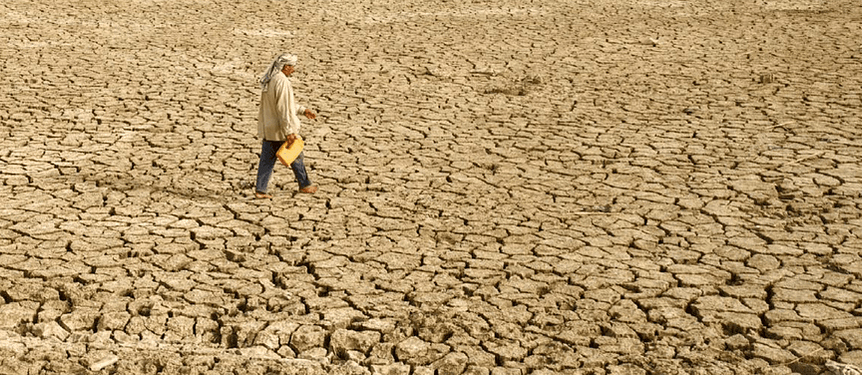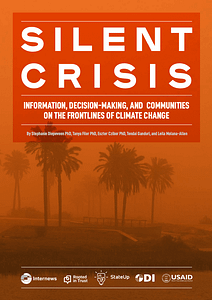
Silent Crisis: New report reveals urgent information needs on frontlines of climate crisis
Silent Crisis, our new report on information, decision-making, and communities on the frontlines of climate change, is out today.
Join us at COP28 on 4th December for the launch of Silent Crisis. Joining details here.
Commissioned by Internews and developed in collaboration with ODI, the report documents profound climate impacts that are already being felt around the world today and the information that local communities, and governments and the international community, need around them.
It makes the case for specific actions that organisations should be taking now to avert massive-scale crises including humanitarian disaster, conflict, and mass migration.
“We’re thinking of emigrating, maybe even to Europe. We want to go to a rich country like Germany. We might use a smuggler and go through Belarus. Here’s death and there’s death, what’s the difference?” Nephew of former rice farmer, Iraq
Frontline case studies
Our research includes on-the-ground case studies from Iraq and Zimbabwe, where we conducted dozens of interviews that show how communities affected by climate disasters need localised information to shape emergency responses and to enable sustainable livelihoods.
While climate discussions often focus on goals and thresholds that are years away, Silent Crisis: Information, Decision-Making, And Communities On The Frontlines Of Climate Change argues that far more attention must be paid to current climate impacts and the information and resource needs around them.
There is a need for governments, humanitarian groups and news organisations to provide practical support by first understanding how people engage with information, what makes information meaningful to them, and what their informational needs are.
At present, information is often siloed and delivered from the top down without the input of local perspectives. To have maximum impact we must move beyond practices that treat communications as a one-way street, towards a more ‘systems’-based approach, in which local, national, and global information ecosystems pertaining to climate impact intersect with greater frequency and equity.
Pressing need for global policy
Dr. Eszter Czibor, StateUp’s Head of Research, and co-author of the report, says: “We must recognise that standard, rapid information-based interventions promoting specific, narrow behavioural adaptations such as changing crops are misaligned to the uncertainty, scale, and complexity of climate change impacts.”
“Instead, people must be equipped with the resources and the informational context to make informed decisions to support their well-being over time, with a view to both immediate and longer-term impacts. Enabling this vision requires a far greater degree of interconnectivity between information providers and decision-makers at local, national, and global levels than is currently the case.”
As public figures are beginning to make clear, timely support for countries and communities worst impacted by climate change, is a matter of global justice. But not only. The interconnected consequences of the climate crisis, including conflict, migration, and food insecurity, make it also a pressing international policy issue with domestic ramifications around the world.
Recommendations for key organisations
Along with the case studies, the report includes a literature review and recommendations.
It provides practical steps forward under five key recommendations:
- Strengthen communication channels between local communities and national and global climate forums and decision-making bodies
- Design and fund hyper-localised, contextually grounded information interventions
- Rethink the criteria for allocation of climate change adaptation funding – and engage local information ecosystems to inform funding and programming decisions
- Fund and deliver a new research agenda at the climate-information-humanitarian nexus
- Identify, develop, and resource realistic channels for responsive government and policy reform
StateUp expertise
The report was co-authored by Stephanie Diepeveen PhD, Tanya Filer PhD, Eszter Czibor PhD, Tendai Ganduri, and Leila Molana-Allen.
It draws on St ateUp’s commitment to systems-level change and expertise in information environments and misinformation, behavioural economics, and public policy.
ateUp’s commitment to systems-level change and expertise in information environments and misinformation, behavioural economics, and public policy.
Read and download the Silent Crisis report here.
StateUp bridges the gap between the worlds of policy, technology, and climate change to address major public needs. Our platforms, research, and networks enable diverse policy participants, from public servants to startups, to collaborate on systems-level problems, unlocking progress and democratising policy participation.
To find out more about the report and how StateUp can support your organisation on climate- change impacts, information needs, and public policy, contact us on climate@stateup.co.
